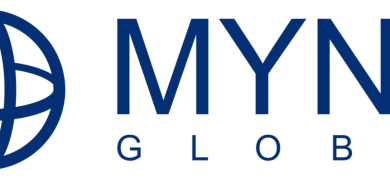Chamberlain Global Tokyo Japan Reviews the Assets You Should Not Put in a Trust

Estate planning is complex, encompassing multiple factors like asset distribution and protection. Trusts can be powerful tools for passing assets to loved ones smoothly and efficiently. One critical aspect of creating a trust is knowing which asset to include in the trust, and which to exclude.
Trusts in Estate and Legacy Planning
A trust is a legal entity that holds assets for the benefit of one or more beneficiaries. One of the main advantages of a trust is that it can help your loved ones avoid the probate process, which can be time-consuming and costly.
By placing assets in a trust, you can ensure distribution according to your wishes without court intervention. Financial firms like Chamberlain Global Tokyo Japan can guide you in creating trusts to accumulate generational wealth.
Let’s explore the assets you should keep out of your trust and why:
Asset Alignment
Properly align your assets to ensure your estate plan works as intended. This process, known as asset alignment or funding the trust, involves transferring ownership of your assets. Your assets may be distributed according to your wishes, potentially leading to disputes among your beneficiaries without proper alignment.
These are the assets you should not include in a trust:
Retirement Accounts
Putting retirement accounts, such as IRAs and 401(k)s, into a trust can have significant tax implications. These accounts are already tax-deferred, so placing them in a trust could trigger immediate taxation, potentially eroding their value.
Instead of placing retirement accounts in a trust, consider using beneficiary designations to specify who should receive these assets upon your death.
Annuities
Annuities offer a dependable income stream for retirees, easing concerns about outliving their savings. As retirement assets might fall short of maintaining their desired lifestyle, some investors buy annuity contracts from insurers or financial institutions.
According to Chamberlain Global Tokyo Japan, placing an annuity in a trust can complicate the distribution process and may have tax implications. It’s generally better to designate a beneficiary for your annuity outside of your trust to ensure a smooth transfer of ownership.
Life Insurance
Life insurance proceeds are typically not placed in a trust. Instead, you can designate a beneficiary for your life insurance policy, ensuring the proceeds go directly to the intended recipient.
Placing life insurance in a trust can create unnecessary complexity and may have tax implications.
Vehicles
While some assets, such as real estate and financial accounts, can benefit from being placed in a trust, vehicles are generally best kept out. Vehicles could complicate matters in the event of an accident or other legal issues.
Create a Trust Before Retirement
Creating a trust can be an effective way to pass assets to your loved ones without probate. However, only some people understand the value of trust and its assets. By carefully considering your estate planning goals and seeking professional advice, you can ensure that your trust serves its intended purpose.
If you’re considering creating a trust or need assistance with estate planning, you can contact a team of experienced financial professionals like Chamberlain Global Tokyo Japan to learn how you can create a comprehensive plan that meets your personal needs and goals.




